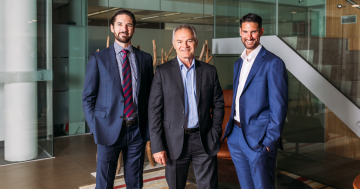
There are some easy ways to build your profile at work. Photo: iStock.com/alvarez
May Busch suggests ways to get into the minds of senior management in order to uncover opportunities to be more visible and valued at work.
Do you want to be more visible and valued at work? After all, these are both important ingredients for career advancement and satisfaction.
Yet for most of us, the workday is dominated by a combination of urgent deadlines, mundane tasks and fire-fighting, all of which must be done, but most of which won’t make us more visible and valued.
What make you visible and valued are the really important projects. That means being part of projects senior decision-makers care about. Ones where you get to use your best strengths to make an impact that can be seen, heard and felt.
Here are three questions for identifying those really important projects to help you advance in your career.
What gets praised publicly and by whom?
One place to look for clues is identifying what gets praised, especially by senior management.
Internally, this can happen in big town hall meetings or in smaller team meetings. Once you’ve identified what gets praised publicly, you can work back from there to see how you and your team can contribute to those outcomes or initiatives. For example, early on in my career I noticed that bringing in first-time business from a new client segment was praised to the skies.
That led me to say “yes” when an opportunity came up to call on new prospects that the senior managing directors didn’t have the bandwidth to follow up themselves.
For your organisation, it could be reducing the carbon footprint, developing cutting-edge new products or reducing client complaints.
What creates problems for senior management?
In contrast to what gets praised, identifying the problem areas and being part of the solution can also raise your visibility. One place to focus is on what internal stakeholders are complaining about. What interferes with the smooth running of the organisation?
It could be the lack of a centralised system for sharing knowledge and best practices, or an inefficient process for on-boarding new clients.
It’s also useful to look at what external stakeholders like the press, social media or the research analyst community are picking up on and criticising.
These problem areas can provide important clues and even inspiration for projects that contribute to solutions, especially ones that you might be uniquely qualified to help with.
What’s going on that’s big and visible?
Really important projects are often tied to what’s big and visible.
It could be a project that’s already under way that’s getting a lot of attention from management or external stakeholders. Or it could be a project that has yet to be formed, in which case you’ll want to step back and look at big, visible trends that are going on internally as well as externally.
Maybe it’s disruptive technology that will have a significant impact on the organisation, whether positive or negative. Perhaps it’s a shift in demographics.
Think about how these are likely to affect the organisation and consider which aspects could use your talents and perspective. For example, the rise of generative AI could lead you to get involved in a project to embed that capability into a process. You can add value without being a technical genius if you understand the needs of the end users or have experience with the systems and processes that already exist.
Don’t make the mistake of assuming a project is important just because it gets talked about publicly. Make sure it’s also related to what senior management cares about, which can be
different for each organisation. For example, operating sustainably might be equally talked about in two organisations, but for one it’s a part of its core values, while for another it’s ticking a box.
Also, remember that priorities can change, so it’s worth revisiting and reviewing what’s really important so you stay current.
- May Busch’s mission is to help leaders and their organisations achieve their full potential. She works with smart entrepreneurs and top managements to build their
businesses. She can be contacted at [email protected]. This article first appeared on May’s blogsite.











